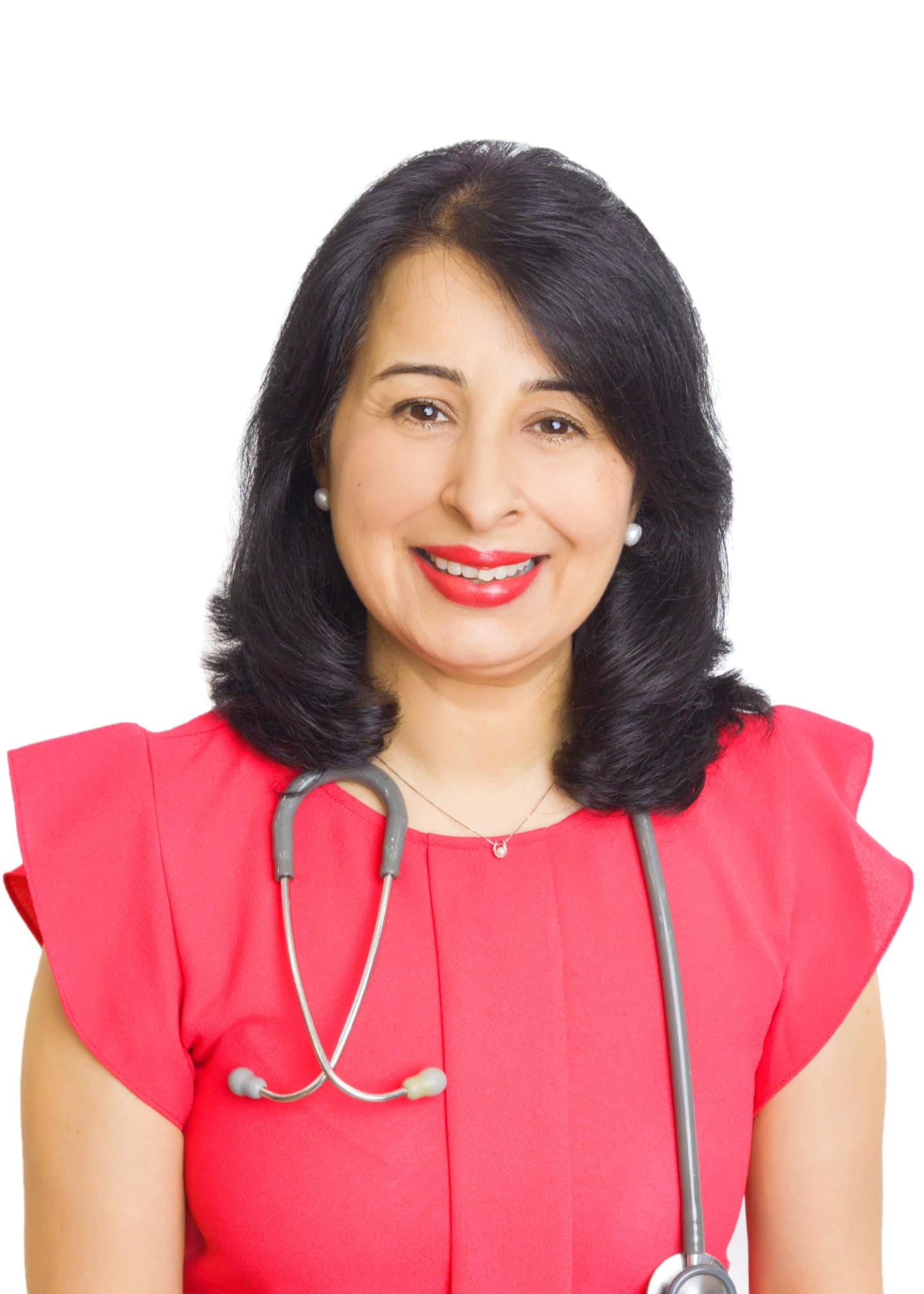What is an ‘eating disorder’? What form can it take?
The condition is signified by an abnormal perception of one’s body image as being fat and an overvaluation of a thin body ideal. A fear of gaining weight leads to extreme weight control behaviour and subsequent damaging biological and psychological effects. Severe malnutrition may lead to cardiac damage, electrolyte imbalance, dizziness, fainting, low hormone levels (leading to loss of bone density), muscle wasting and hair loss. Depression, anxiety and suicidal ideation are frequent psychological effects.
Anorexia nervosa results from extremely restrictive food patterns and over exercise resulting in significantly low weight in relation to what is minimally expected for age, sex and development. There may be a restrictive group or a binge-eating/ purging subtype who induce vomiting/ abuse laxatives to lose weight. In General Practice, it is important to look out for these when adolescents present with fatigue, dizziness, cessation of periods, cold hands and feet, mood changes or poor concentration. Social withdrawal to avoid eating out and being secretive about food are indicators that should prompt deeper questioning.
Bulimia nervosa is marked by recurrent episodes of impulsive binge eating of large amounts of food across a short period (at least once a week for 3 months) followed by guilt and compensatory behavior – self induced vomiting, laxative or diuretic use and over exercise. Weight may be normal or slightly below or above normal making it harder to recognize. Tooth erosion due to vomiting may be noted.
Binge Eating disorder is marked by episodes of over-eating impulsively and uncontrollably until uncomfortably full followed by guilt and shame (occurring at least once a week for 3 months). There is no compensatory behavior such as self-induced vomiting. There is marked psychological distress associated with it.
Other Specified Feeding Disorder – This group encompasses those who may not fit the criteria perfectly or have not had the symptoms for long enough to fit the above groups. There is an ‘Unspecified Feeding disorder’ group where there is inadequate information to make a diagnosis.
Orthorexia is a less commonly known disorder marked by obsession with what is perceived to be ‘healthy or pure’ food. A large number of food groups may be eliminated in a pursuit of health and patients may over exercise. This may cause a severe weight loss. An Obsessive Compulsive Disorder often co-exists.
How common are eating disorders in teens?
Anorexia nervosa is commoner in early adolescence (0.5- 1% incidence in US studies) whereas as Bulimia in late adolescence (3-5 %). A slightly larger percentage may fall under other groups. In the UK, about 1.6 million people suffer from an eating disorder – 1 in 100 women between 15-30 years of age (10% have anorexia, 40% bulimia and the rest fall under other categories described above).
What age do eating disorders typically start?
Usually in early adolescence (13- 17 years) where body image becomes more important and the need for peer acceptance is paramount.
What are the triggers for eating disorders?
A combination of genetic, social (peer and family) as well as cultural factors may have a complex interplay in causation. Social media, modeling advertisements etc. are likely to influence susceptible youngsters. Certain children with perfectionist personalities and those with mood disorders may find controlling their food and weight as a way to regain control of their lives and relieve stress.
Are eating disorders more common in girls than boys?
The illness is often assumed to be commoner in females but studies have shown up to 1 in 3 eating disorders to be affecting males – including subclinical disordered eating habits. There may be an element of bias and under diagnosis if the person does not fit a stereotype.
What do you recommend a parent do if they suspect a child is developing an eating disorder?
As most sufferers are embarrassed or unwilling to seek help, being alert and seeking help early as a parent is essential. A physician would make a clinical assessment that includes measuring weight, cardiac parameters and assess co-existing anxiety/ depression. Usually a referral to an age appropriate community based service is the best option. This would ideally consist of a multidisciplinary team consisting of a physician, dietician, psychologist and nurse. Hospital admission may be indicated for rapid weight loss or emaciation, signs of the heart and circulation being affected, dehydration/electrolyte imbalance and extreme resistance for the child to enter into an outpatient based method of management.
What is the best way a parent can support their teen?
Once the initial crisis has been dealt with in hospital, the adolescent still has a long path to recovery. During this time, the family’s role becomes extremely important – hence ‘Family Based Therapy’ is a proven approach especially for Anorexia management. After weeks of education and training sessions, the family is empowered and enabled to manage the condition at home collaboratively with the adolescent.
If your child has an Eating Disorder, support them by:
- Educating yourself about the condition – this will help let go of the guilt and self blame and equip you to manage the child with patience and confidence rather than frustration.
- Communicate with your adolescent as well as other parents you may meet through therapy – you are not alone.
- An encouraging and positive approach is essential as he/she is likely to be withdrawn/ shameful or angry and moody.
- Focus on your child’s strengths, helping her deal with her stress in a positive manner (this is to avoid weight and food control/ compensatory behavior).
- Managing a relapse and knowing when to seek help.
- Looking after oneself is important!
Conclusion
Eating disorders cause biological changes in many body systems- the brain (hypothalamus especially that controls appetite, sleep, hormones), cardiovascular , reproductive and skeletal. Many of these recover gradually and there is hope. Self esteem and self image may be ongoing issues and support from the family go a long way in preventing / managing relapse.

Call 6342 4440 or visit www.imc-healthcare.com




































